‘Expedition? Ah. I think you’d better have a seat.’
Prabir complied. Lowe said, ‘You mean the biologists, don’t you? I’m afraid you’ve missed them; they left weeks ago. They took a boat and headed south.’
‘But I thought they were back.’ Prabir blinked at him, confused. He’d had nine hours’ sleep in Darwin, and woken at dawn feeling perfectly normal, but now jet-lag was catching up with him again. ‘I thought you said you were—’
‘You thought I was one of them? God, no!’ The older man seated opposite glanced up from his work. Lowe said, ‘Hunt, this is Prabir Suresh: he’s chasing the biologists, for some unfathomable reason. Hunter J. Cole, Georgetown University. And this is Mike Carpenter, one of his postdocs.’
Prabir leant across the table and shook hands with them. The desk clerk hadn’t been mistaken; the bar was full of foreign academics. But if the biologists hadn’t returned, who were these people?
‘You’re here to observe the Efflorescence?’ Cole wore a fixed, slightly self-effacing smile, as if he knew from long experience that it was only a matter of time before he said something devastatingly clever, and he was already basking graciously in Prabir’s anticipated response.
‘I suppose so. Though I hadn’t heard it called that before.’
‘My own terminology,’ Cole confessed, raising one hand dismissively as he spoke. ‘My Taxonomy of Eucatastrophe has not been widely read. And still less widely understood.’
Prabir was feeling increasingly disorientated. The title sounded as if it should have made sense to him — something to do with population ecology, maybe? — but the actual meaning eluded him completely.
‘Whatever terminology we choose to deploy,’ Lowe responded earnestly, ‘what we’re witnessing here is a classic manifestation of the Trickster archetype, taking gleeful pleasure in confounding the narrow expectations of evolutionary reductionism. After biding its time for almost two centuries, indigenous mythology has finally given rise to the ideal means of undermining the appropriations of Wallace. This meshes perfectly with my over-arching model of nature as “The Unruly Woman”: disruptively fecund; mischievously, subversively bountiful.’
Cole smiled contentedly. ‘That’s an interesting framework, Martin, but I find many aspects of it deeply problematic. The only safe assumption we can make at this point is that we’re moving into a Suspensive Zone, where normal logics and causalities are held in abeyance. To reify the disruptive impulse is to presuppose that every teleological trajectory implies an agent, and ultimately to misunderstand the entire dynamic of Wrongness.’
Prabir was experiencing severe déjà vu: Keith and Amita had had arguments like this, all Big Dumb Neologisms and thesaurus-driven bluster. It was like listening to two badly written computer programs trying to convince each other that they were sentient. He glanced hopefully at Cole’s student, Carpenter; surely his generation had regained some mild interest in reality, if only for the sake of rebelling against half a century of content-free gibberish.
Carpenter tipped his head admiringly towards his mentor. ‘What he said.’
The rest of the courtyard had fallen silent. Prabir looked around to see what had caught their attention. A huge black bird, fifty or sixty centimetres tall, had landed on one of the unused tables, and was sitting with its back to him, preening its feathers. Though it was dark as a raven, it was unmistakably a species of cockatoo, with a slender, almost thread-like crest. He’d seen them on the island now and then, but never in the metropolitan heart of Ambon. Maybe this was a sign that the city really had brought its pollution levels under control.
The bird turned its head to peck at its shoulder, revealing a row of sharp brown teeth embedded in the lip of its beak.
Prabir felt a small, hot trickle of urine flow across one leg. Mercifully, he’d emptied his bladder half an hour ago; there was almost nothing to soil his clothes. He glanced at Lowe, who was staring at the creature with a glazed expression. No one in the courtyard was moving or speaking. The bird emitted a brief raucous cry, then began grooming under one wing.
‘You’re a fine boy, aren’t you? You’re my beautiful boy!’ A woman had risen from one of the tables; she approached the bird slowly, crooning to it softly, circling around it to get a better view. Prabir watched her, horrified at first, then impressed by her presence of mind. The thing was still a cockatoo, after all, not some taloned bird of prey. As a child he’d been entirely unafraid of its equally imposing cousins, and the teeth scarcely added to the kind of damage its beak could have inflicted anyway.
The woman announced, to no one in particular, ‘I can see no sign of reversal of normal fusion in the vertebrae of the pygostyle. No vestigial claws on the wing tips. Naive to look for these things, I suppose, but whose instincts wouldn’t tell them to cherchez la theropod?’ Prabir found it hard to judge whether her speech was slurred — she spoke with a strong Welsh accent for which his ear was not well calibrated — but her movements seemed a bit uncoordinated.
She made a grab for the bird’s legs. It squawked and ascended half a metre, then came down on the table again, lunging at her. Prabir rose to his feet, but he was too far away to help. The bird sank its teeth into the woman’s forearm, shook its head vigorously to and fro half a dozen times, then opened its jaws and flew away.
‘Fuck. Fuck!’ She stared after it angrily, then glanced down at her wound. ‘Buccal fauna. Food residues. Saliva!’ She tipped her head back and laughed with delight, then dashed from the courtyard.
Prabir caught up with her outside the hotel. ‘Excuse me. I’m sorry. Can I talk to you for a second?’
The woman scowled at him. ‘What’s your problem? I’m in a hurry.’
‘I understand. I won’t slow you down; I can explain while we walk.’
She didn’t look too happy with this, but she nodded reluctantly. ‘It’s too crowded for me to run, and I don’t want to raise a sweat.’ Prabir thought it unwise to point out that this was a lost cause, unless she planned to conjure up an air-conditioned limousine in the next thirty seconds.
He said, ‘I’m hoping to get in touch with someone on the expedition. Do you think you’d be able to let me have a copy of the itinerary?’ She must have arrived late in Ambon, or succumbed to a temporary illness when the others were leaving. Since she hadn’t given up and gone home, she was presumably in the process of arranging to rejoin her colleagues. If he offered to split the cost, she might even let him hitch a ride.
She took a few seconds to make sense of his question. ‘You mean the university biologists? I’ve only been here six days; they left weeks ago.’
‘You’re not with them?’
‘Hardly. I’m freelance.’
‘You’ve had no contact with them at all?’
‘No.’ She turned to face Prabir, without slowing her pace. ‘Can’t you just call whoever it is? There’s no reason for them to be having reception problems.’
‘It’s my sister. And no, I can’t call her.’ He added defensively, ‘It’s complicated.’
The woman shrugged; this was none of her business. ‘I’m sorry. But I really don’t know where they’ve gone.’
Prabir was bitterly disappointed, but he struggled to regain some perspective. Before he’d checked into the hotel he hadn’t expected to learn anything useful for days.
He said, ‘Well, good luck with the saliva. I can’t think what possessed you to walk into a bar without a sequencer on you.’
Читать дальше
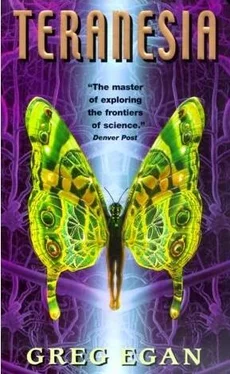

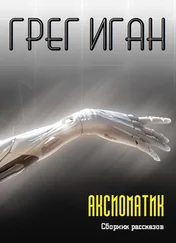
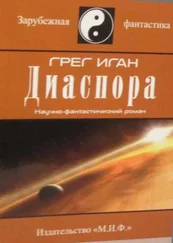
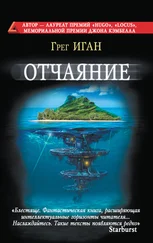
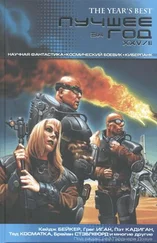
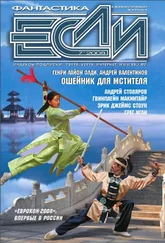

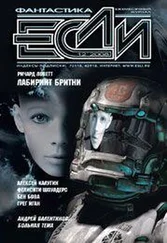
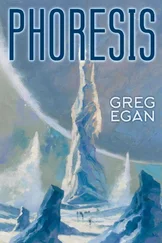
![Грег Иган - Рассказы [компиляция]](/books/419837/greg-igan-rasskazy-kompilyaciya-thumb.webp)
